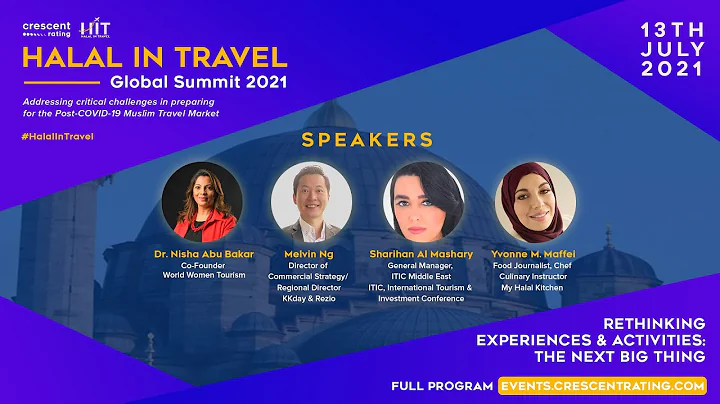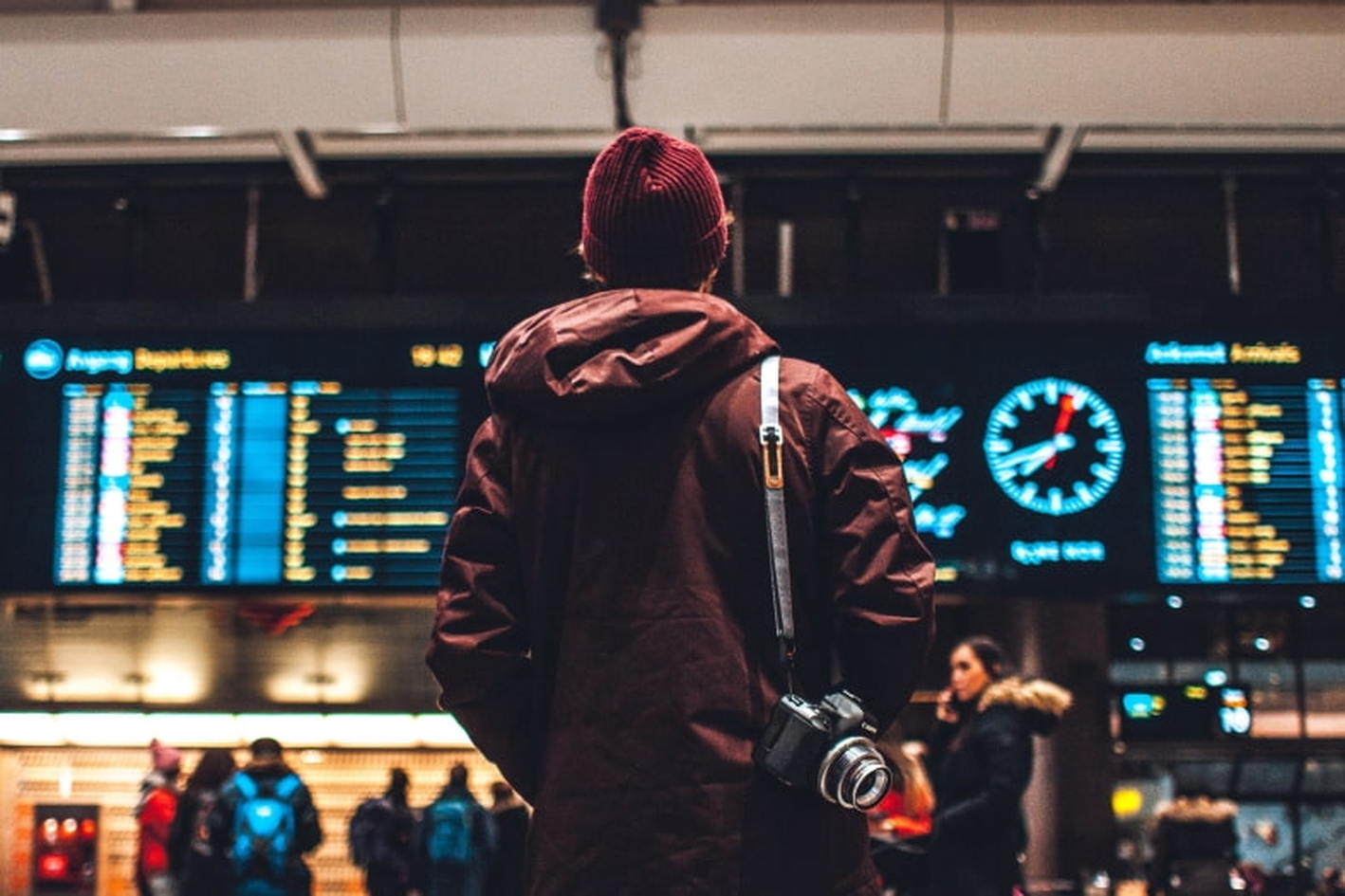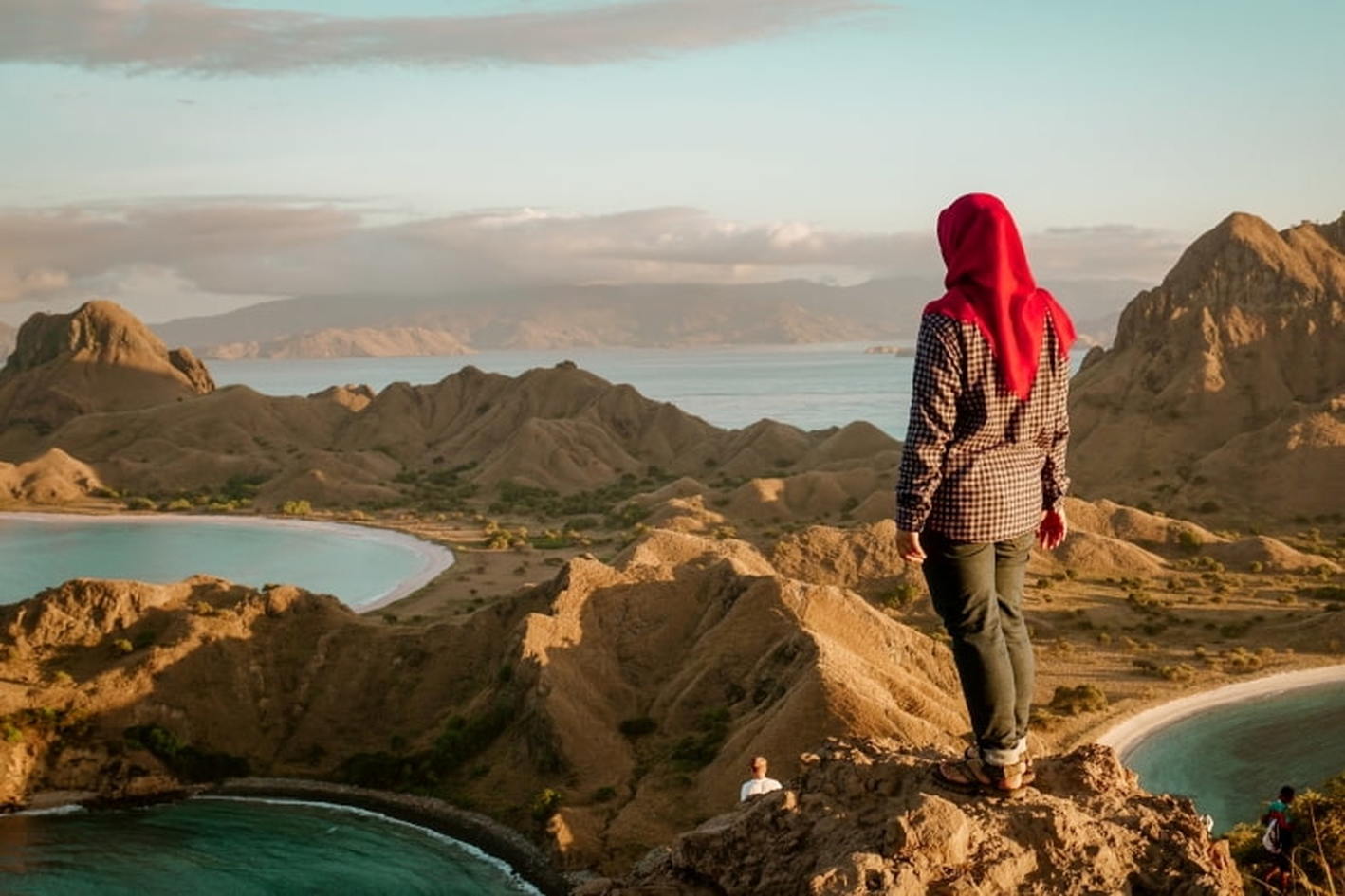
The arrival of the COVID-19 vaccines provided the much needed hope for stakeholders of the tourism industry on the resumption of international leisure travel soon.
However, the pandemic resulted in seismic shifts in the sector, including the Muslim travel market. Muslim travelers are not only looking forward to their next flight or visiting their next destination. They are also searching for more meaningful and immersive experiences.
Hence, CrescentRating has gathered key figures from the tourism and hospitality industries for a virtual session, titled Reinventing Experiences and Activities, to give us a clearer picture on the future of Muslim travel.
The livestream event is part of CrescentRating’s Halal in Global Summit 2021 which aims to provide stakeholders of the Muslim travel industry insights and tips in navigating a post-pandemic setting.
Panelists for the Reinventing Experiences and Activities activity included Yvonne M. Maffei (Food Journalist, Chef & Culinary Instructor, My Halal Kitchen), Sharihan Al Mashary (General Manager, ITIC Middle East, ITIC, International Tourism & Investment Conference), and Melvin Ng (Director of Commercial Strategy/ Regional Director, KKday & Rezio).
Dr. Nisha Abu Bakar, co-founder of the World Women Tourism, was also invited as its moderator.
Read on to learn more about the highlights from the webinar.
Welcoming the new era of traveling is both an opportunity and a challenge for stakeholders.
Experts during the Reinventing Experiences and Activities webinar agreed sector members must recalibrate their products and services in order to cater better and attract today’s more empowered and discerning travelers.
In addition, their plans must be grounded on the four pillars that reshaped the future of traveling - demand evolution, health and hygiene, innovation and digitalization, and sustainability.
“Destinations and tourist stakeholders, including hotels, need to find new ways to facilitate safe and innovative experiences in a post-COVID environment,” said Dr. Nisha Abu Bakar.
The latest research on travel and tourism shows that stakeholders will be facing major disruptions moving forward. In particular, changes in travelers’ behavior and preferences. The pandemic has paved the way for more discerning and savvy travelers, who prefer quality and authentic experiences over anything. During lockdowns, widespread internet use contributed greatly to the growing number of empowered travelers who are often characterized as socially conscious. In turn, members of the travel and hospitality industries should consider promoting activities that focus on authentic experiences such as immersive cultural trips highlighting local cuisines.
COVID-19 also led people to shift their priorities when it comes to traveling. More specifically, putting health above the rest. For tourism stakeholders, however, it’s not only about ensuring safe and hygienic practices. It is also about promoting a destination that has the capacity to foster overall wellbeing. In fact, ‘wellness destinations’ could be an opportunity for members of the Muslim travel and tourism sector considering that its value is projected to reach US$ 4.2 trillion. Wellness was seen as a rising trend in the hospitality industry with travelers shifting their focus on spending their holidays that nurture their mental and physical wellbeing.

Image Source: Unsplash
Similarly, the key stakeholders in the travel and hospitality industries should be gearing up for innovation in packages for Muslim travelers that can encompass beyond Relax and Rejuvenate (R&R). An example would be spiritual retreats to help travelers unplug themselves from the bustling lifestyle in urban jungles, and other experiences designed to facilitate digital detoxifying.
Innovative solutions helped most members of the Muslim travel market stay afloat during the height of the pandemic. The introduction of virtual tours and interactive digital magazines kept destinations visible on a traveler’s radar. In turn, experts highly recommend for stakeholders to invest in innovation and digitalization to further market destinations and experiences. In this way, they can convert passive audiences into potential tourists.
Yvonne M. Maffei, food journalist and chef for My Halal Kitchen, also pointed out that with more and more people relying on the internet for their daily activities, travel and tourism players should beef up their digital presence. Hence, it is important for the players of the hospitality industry to go digital. Virtual tours can be leveraged to promote a destination or activity by giving internet users a glimpse or teaser of what they can expect. The same thing goes with digital magazines which, according to Yvonne, could help stakeholders respond to discerning tourists.
During lockdowns, more and more consumers, including tourists, have grasped the importance of leading a sustainable lifestyle.
Being sustainable, however, is not only limited to advocating eco-friendliness. As what experts pointed out during the Reinventing Experiences and Activities webinar, sustainability also encompasses the need to help a community thrive and flourish.
Travelers in a post-pandemic setting are more inclined on visiting destinations or doing excursions that help stir economic activities. Aside from doing ‘more greener’ adventures, they are more attracted to less-crowded and more localized destinations. Altogether, these activities give emphasis on making travel a more meaningful experience - one that allows every visitor to give something back to the community.

Image Source: Unsplash
There is hope that international Muslim travel will resume soon, if not immediately. However, travelers are expected to be more meticulous and empowered in their travel choices. This just one of the many disruptions in the Muslim travel market we may encounter in a post-COVID setting. We hope the insights CrescentRating has provided would be of great help for stakeholders in making more informed decisions and plans for the future.
Click here for full session.